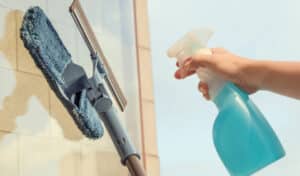Mon-Sat: 09:00AM to 05:00PM Sunday: Closed

Call Us Now 504-800-8897
Mon-Sat: 09:00AM to 05:00PM Sunday: Closed

Call Us Now 504-800-8897
Residential and commercial sanitation requirements differ in scale and scope and need a varied strategy. Domestic sanitation aims at creating clean, safe, and healthy homes for all families. Domestic sanitation tends to concentrate on the more personal scale, such as houses and flats.
Commercial sanitation is the practice of efforts to maintain larger properties such as office buildings, restaurants, and warehouses. It requires highly specialized equipment and rigorous adherence to health regulations, among other considerations.
Knowledge of these distinctions with Big Easy Remediation allows for proper cleaning strategies specific to the individual demands of each setting, for daily maintenance or more involved remediation requirements.

Commercial cleaning is subject to strict regulations, such as Occupational Safety and Health Administration ( OSHA ) regulations and protocols that vary by industry. Residential sanitation is much less regulated, focusing on frequent household hygiene and safety. Both systems should follow their local waste disposal ordinances, prioritizing environmentally sound disposal methods.
Commercial spaces require heavy-duty waste disposal systems and infrastructure to accommodate more intense trash loads and more frequent usage. Residential sanitation is based on smaller bins with only weekly, curbside collection, designed around a lower volume of waste generated by the average residential household.
Industrial cleaning employs industrial-grade equipment like heavy-duty vacuum cleaners, scrubbers, and power washers. In commercial sanitizing, advanced technologies like HEPA filters used in hospitals drive sanitation further.
Residential cleaning still uses more basic equipment, like mops, home vacuum cleaners, and traditional disinfectants. Both commercial and residential sectors are turning to green solutions to protect the environment.
Cleaning with a commercial focus has defined schedules and customized protocols, all of which contribute toward meeting high standards of cleanliness. Residential cleaning is less regimented, done weekly or whenever by a more flexible schedule, and largely about the individual’s comfort and aesthetic desire, their cleanliness.
Commercial cleaning services are more expensive because they’re more complicated. Businesses are used to budgeting for regular service, as well as occasional specialized service like deep cleaning. Unlike with residential cleaning, where costs vary based on home size and how often the cleaners come, giving clients a budget-friendly, predictable option.
Commercial and residential sanitation systems, public or private, encounter distinct challenges influenced by the factors of scale, user behavior, and regulatory influences. Addressing these challenges requires careful planning and context-specific solutions to achieve the efficiency and sustainability that these concepts promise.

These high standards don’t come cheap. Employing trained personnel and investing in specialized products can seriously deplete budgets. This is particularly difficult for commercial enterprises that have to weigh these costs against all other business operating expenses.
Inadequate consumption of waste segregation continues to be a prevalent issue in residential sanitation, as recyclable and hazardous materials are frequently thrown in the wrong disposal bin. This threatens the ability to process our waste and has dire consequences for the environment.
Knowing the difference between commercial and residential sanitation will ensure that you select the right approach to each environment. Both come with their own set of challenges, whether it be maintenance needs or environmental effects.
Whether you need guidance or support, reach out to Big Easy Remediation. We are industry experts and can walk you through the available options to decide on the best solution for your facility. It is an opportunity to invest in the right sanitation system that will ultimately save time, money, and hassle in the future.